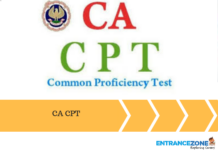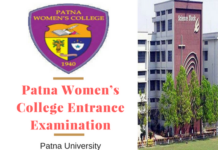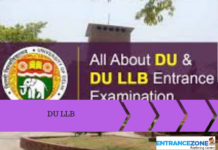Electronics and Communication Engineering Course– ECE deals with software interfaces and electronics devices. It involves researching, developing, testing and designing of electronic devices used in various systems. ECE also understands and helps in the manufacturing of communication and broadcast systems. Candidates can apply for UG, PG and Diploma Degree courses in Electronics and Communication Engineering based on Entrance Exam scores. The average annual wage for an industrial engineer is Rs. 3. to 5 Lakh as a Fresher. Candidates can check about different degree courses, eligibility, different Jobs, etc available on this page.
Admission Open 2023
- Top University & Colleges Official Links, Application & Scholarship Forms.
Popular Electronics and Communication Engineering Courses
Contains
Candidates can check different degree courses and its eligibility criteria to choose ECE as a career:
| Courses | Specializations | Minimum Eligibility | Duration |
| Diploma | Electronics & Communication Engineering |
|
3-years |
| BE | Candidates must pass 10+2 with PCM from recognised Board | 4-years | |
| B.Tech | Candidates must pass 10+2 with minimum 55% marks with PCM from a recognised board | 4-years | |
| B.Tech+MBA | Candidates must pass 10+2 with PCM from a recognised board | 5-years | |
| B.Tech+M.Tech | Candidates must pass 10+2 with minimum 55% marks with PCM from a recognised board | 5-years | |
| ME | Candidates must hold B.E/B.Tech degree with minimum 55% marks in concerned subjects from recognised University | 2-years | |
| M.Tech |
|
2-years | |
| M.Sc | Candidates must hold B.E/B.Tech degree with minimum 50% marks in concerned subjects from recognised University | ||
| M.Phil | Candidates must pass Master’s Degree in ECE from recognised University | 2-year | |
| PhD | Candidates must pass Master’s Degree in ECE or M.Phil degree in concerned subjects from recognised University | 3-years |
What is Admission Process for Electronics and Communication Engineering Course?
Seats allotted for admission in ECE program based on Merit-List and Entrance Exam scores. Check admission procedure for different courses below
Subscribe to Get Updated Information about Electronics and Communication Engineering Course Details: Check Admission Process - Admissions
For Diploma:
- Marks obtained in relevant qualifying exams.
- Marks obtained in Class 10th.
For B.Tech/BE:
-
- Entrance Exam conducted by particular University
- Marks obtained in the entrance examination.
- Marks obtained in Class 10+2 in PCM.
For M.Tech/ME:
- Marks obtained in GATE.
- Entrance Exam conducted by particular University
- Marks obtained in Interview.
- Marks obtained in Bachelor Degree.
- Marks obtained in 10+2
For M.Sc:
- Entrance Exam conducted by particular University
- Marks obtained in Interview(if conducted).
- Marks obtained in Bachelor Degree.
- Marks obtained in 10+2
For M.Phil. :
- Marks obtained in UGC NET/GATE/JEST/UGC – CSIR or relevant national exam.
- Marks obtained in Personal Interview.
- Marks obtained in the Master’s Degree.
For PhD:
- Marks obtained in UGC NET/GATE/JEST/UGC – CSIR or relevant national exam.
- Marks obtained in Personal Interview.
- Marks obtained in the Master’s Degree.
- Marks obtained in M.Phil Degree.
Syllabus for Electronics and Communication Engineering Courses
University and Colleges offer Industrial Engineering follow a prescribed syllabus, check below
For Diploma:
| Ist Year | 2nd Year | 3rd Year |
| Professional Communication | Applied Mathematics II | Industrial Management and Entrepreneurship Development |
| Applied Physics | Industrial Electronics & Transducers | Communication System |
| Electrical Engineering I | Electronic Devices and Circuits. | Construction Management, Accounts & Entrepreneurship Development |
| Applied Mechanics | Principles of Digital Electronics | Television Engineering |
| Technical Drawing. | Programming in C & C++ | Field Exposure |
| Computer Application for Engineering | Electrical Engineering II | Environmental Education & Disaster Management |
| Applied Mathematics III | Network Filters & Transmission Lines | Electronic Instruments and Measurement. |
| Applied Chemistry | Principles of Communication Engineering. | Audio and Video System |
| Engineering Mechanics & Materials | Electronics Workshop. | Microprocessor and Application |
| Electronic Components and Devices. | — | Project -I. Problem |
| Elementary Workshop Practice. | — | — |
Syllabus For Bachelor of Engineering (BE):
| Subjects | Important Topics |
| Chemistry I | Chemical Thermodynamics, Dynamics of Chemical Processes, Electronics, Water, Polymers |
| Engineering Mechanics | Basics, Statics of Particles, Dynamics of Particles, Elements of Rigid Body Dynamics, Equilibrium of Rigid Bodies, Properties of Surfaces and Solids, Friction. |
| Mathematics I | Matrices, Three-Dimensional Analytical Geometry, Functions of Several Variables, Ordinary Differential Equations, Tutorial |
| Physics I | Properties of Matter, Acoustics, Heat and Thermodynamics, Optics, Laser and Fibre Optics |
| Circuit Theory | Basics of Circuit Analysis, Network Theorems, Resonance and Coupled Circuits, Transients, Duality and Topology, Tutorial |
| Mathematics II | Multiple Integrals, Complex Integration, Statistics, Vector Calculus, Analytic Functions. |
| Material Science | Crystal Physics, Magnetic and Dielectric Materials, Optical Materials, Conducting Materials, Semiconducting Materials. |
| Engineering Graphics | Principles of Graphics, Orthographic Projections, Pictorial Projections, Computer Graphics |
| Network Analysis and Synthesis | Analysis of Networks In ‘S’ Domain, Passive Filter Design, Active Filter Design, Methods for Computer-Aided Network Analysis, Elements of Network Synthesis. |
| Signals and Systems | Classification of Signals and Systems, Analysis of C.T. Signals, LTI-CT Systems, Analysis of D.T. Signals, LTI-DT Systems |
| Electromagnetic Fields | Static Electromagnetic Fields, Static Magnetic Field, Electric Field in Dielectrics, Magnetic Field in Ferromagnetic Materials, Time-Varying Electric and Magnetic Fields |
| Electronic Circuits I | Basic Stability and Device Stabilization, Rectifiers and Power Supplies, Frequency Response of Amplifiers and Analysis Using Spice. |
| Electrical Engineering | Circuits and Transformers, Transmission and Distribution, DC Motors, Induction Motors, Synchronous and Special Machines |
| Mathematics III | Partial Differential Equations, Fourier Series, Boundary Value Problems, Laplace Transforms, Fourier Transforms |
| Electronic Circuits II | Feedback Amplifiers, Oscillators, Block Oscillators and Timebase Generators, Tuned Amplifiers, Multi-vibrator Circuits |
| Digital Electronics | Basic Concepts and Boolean Algebra, Logic Gates, Combinational Circuits, Sequential Circuits, Fundamental Mode Sequential Circuits |
| Programming and Data Structures | Programming Concepts, Advanced Topics on Data Structure, Algorithms, Pascal / C, Data Structure. |
| Linear Integrated Circuits | Circuit Configuration for Linear ICS, Analogue to Digital and Digital to Analogue Converters, Special Function ICS, Applications of Operational Amplifiers, Analogue Multiplier and PLL. |
| Measurements and Instrumentation | Transducers, Data Display and Recording System, Computer Controlled Test System, Signal Generator and Signal Analyzers, Digital Instruments. |
| Random Processes | Probability and Random Variables, Two-Dimensional Random Variables, Random Processes, Correlation Function, Spectral Densities |
Syllabus For Master of Engineering (ME):
| Semester I | Semester II | Semester III | Semester IV | Elective
I/II/II |
Elective
IV/V/VI |
| Applied Mathematics | Machine Vision | Elective IV | Project Work (Phase II) | Mobile and Personal Communications | Speech and Audio Signal Processing |
| Advanced Radiation System | Optical Signal Processing | Elective V | — | Neural Networks and Applications | Satellite Communication |
| Advanced Digital Signal Processing | RF System Design | Elective VI | — | High-Performance Communication Networks | VLSI Signal Processing |
| VLSI Design Techniques | Elective I | Project Work (Phase I) | — | Analysis and Design of Analogue Integrated | Genetic Algorithms and Applications |
| Wireless Communication Networks | Elective II | — | — | Multimedia Systems | Simulation of Communication Systems and |
| Optical Fibre Communication | Elective III | — | — | Communication Network Security | e-Commerce Technology |
| —- | Electronics and Communication Engineering | — | — | Design of Semiconductor Memories | Microwave Integrated Circuits |
| — | — | — | — | Circuits | Optical Communication Networks |
| — | — | — | — | Low Power VLSI Design | Wireless LAN |
| — | — | — | —- | ASIC Design | Networks |
| —- | — | —- | —- | Data Communication Networks | Network Routing Algorithms |
| —- | —- | — | — | Real-Time Embedded Systems |
Syllabus For M.Sc:
| Important Topics | Important Topics |
| Physics I | Mathematics I |
| Discrete mathematics & Mathematical logic | Semiconductor Devices |
| Electronic Devices and Circuits | Introduction to Computer Programming |
| Communication skills | Physics II |
| Mathematics II | Digital Electronics |
| Electrical Engineering | Data & File Structures |
| Principles of Management & Economics | Electronics Workshop |
| Probability & Statistics | Mathematics III AT-III |
| Analog Devices and Circuits | Electromagnetic Fields and Waves |
| Communication Engineering I | Computer Organization |
| Semiconductor Technology | Microprocessor Programming |
| Signals and Systems | Communication Engg. II |
| Business Systems | Electronics Instrumentation |
| RF & Microwave Engg. | Computer Controlled Systems |
| VLSI Technology | Antenna & Wave Propagation |
| Computer Networking | Optical Communication |
| VLSI-Design | Digital Signal Processing |
Syllabus For Master of Technology (M.Tech):
| Subjects | Subjects |
| Digital Circuits & Systems | Digital Image Processing |
| Digital Signal Processing | Digital Voice and Picture Communication |
| Modern Digital Communication Technology | Optical Communication Systems |
| Optimal Control | Satellite Communication System |
| Semiconductor Devices and Modelling | Solid-State Circuits |
| Telecommunication Switching and Network | VLSI Technology and Process Modelling |
Syllabus for ECE For PhD:
| Important Topics | Important Topics |
| Adaptive Signal Processing | Audio Signal Processing |
| Biomedical Instrumentation | Biomedical Signal Processing |
| Communication | Control Systems |
| Control Theory Applications | Digital Signal Processing |
| Electromagnetics | Finite-Precision Signal Processing |
| Fuzzy Logic | High-Speed VLSI Structures for Signal Processing & Communication |
| Image Processing | Industrial/Ultrasonic Instrumentation |
| Medical Image Processing | Microprocessors |
| Microstrip Antennas | Microwave Engineering |
| MOSFET Devices | Neural Networks |
| Non-Destructive Testing | Pattern Recognition |
| Power System and Power Electronics | RF Circuits |
| Speech Processing | Statistical Signal Processing |
| Stochastic Systems | VLSI Technology |
| Wavelets | Wireless Communication |
College/Universities offering Electronics and Communication Engineering
Candidates can check Colleges or Universities that offer ECE courses below:-
- Indian Institute of Technology, Roorkee
- Indian Institute of Technology, Guwahati
- National Institute of Technology, Surathkal
- National Institute of Technology, Warangal
- Indian School of Mines, Dhanbad
- National Institute of Technology, Trichy
- Vellore Institute of Technology(VIT), Vellore
- SRM Institute of Science and Technology, Chennai
- Manipal Institute of Technology, Manipal
- D.Y. Patil College of Engineering and Technology, Pune
- Coimbatore Institute of Technology, Coimbatore
- Lovely Professional University, Jalandhar
Skill Set Required for Electronics and Communication Engineering
Careers of an electronics & communication engineer can lead in many directions and long-term opportunities. For this candidates must need the below-mentioned skills:-
- Complex problem-solving skills and a methodical mind
- Aptitude for maths
- Communications skills
- Critical thinking
- Strong interest in technology
- Strong IT skills
- Time management
- An ability to prioritise and plan work effectively
Electronics and Communication Engineering Course Job Profiles
Candidates who completed their degree courses in ECE can find a range of career opportunities. Candidates can read carefully job profile given below:-
- Electronics Engineer
- System Control Engineer
- Electronics Design & Development Engineer
- Network Engineer
Candidates can also choose numerous Government Jobs.
Check Popular Courses After 12th here.




















